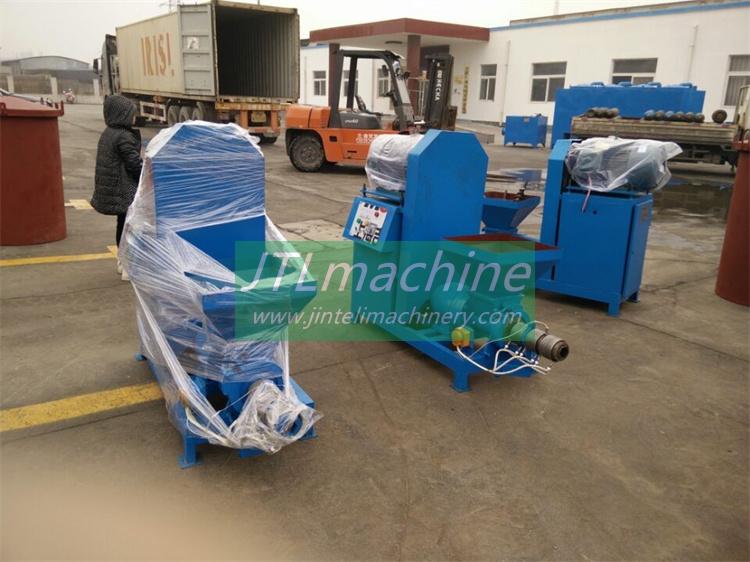Table of Contents
تعظيم الكفاءة: كيف تُحدث آلات قوالب الكتلة الحيوية ثورة في إنتاج نشارة الخشب
الحلول المستدامة: استكشاف الفوائد البيئية لآلات صنع الفحم الخشبي
في الختام، تمثل آلات صنع الفحم النباتي حلاً واعداً لمواجهة التحديات البيئية مع دعم التنمية الاقتصادية. ومن خلال استخدام نفايات الكتلة الحيوية لإنتاج الفحم، توفر هذه الآلات بديلاً مستدامًا لطرق إنتاج الفحم التقليدية، والتي غالبًا ما تساهم في إزالة الغابات والتلوث. إن قدرتها على الحد من انبعاثات الغازات الدفيئة والحفاظ على الموارد الطبيعية وتعزيز الاقتصادات المحلية تؤكد أهميتها في التحول نحو مستقبل أكثر استدامة. بينما نواصل إعطاء الأولوية للإشراف البيئي، فإن الاستثمار في تقنيات مثل آلات صنع الفحم الخشبي يمكن أن يلعب دورًا حيويًا في تحقيق أهداف الاستدامة لدينا.
Sustainable Solutions: Exploring the Environmental Benefits of Wood Log charcoal making Machines
In today’s world, where environmental concerns are paramount, innovative solutions are continually sought to minimize our impact on the planet. One such solution gaining traction is the use of wood log charcoal making machines. These machines play a pivotal role in transforming biomass, such as sawdust and wood residues, into valuable charcoal products. In this article, we delve into the environmental benefits of wood log charcoal making machines and their contribution to sustainable practices.
Firstly, it’s crucial to understand the process behind these machines. Biomass briquette machines, sawdust production machines, and wood log charcoal making machines all operate on the principle of converting waste materials into usable charcoal. By compressing sawdust or other wood residues under high pressure, these machines produce dense briquettes that can then be carbonized to create charcoal. This process not only utilizes waste materials effectively but also reduces the need for traditional charcoal production methods, which often involve deforestation and release harmful emissions.
The environmental advantages of wood log charcoal making machines are manifold. One significant benefit is the reduction in deforestation rates. By providing an alternative source of charcoal production, these machines help alleviate the pressure on forests, which are vital carbon sinks and habitats for biodiversity. Moreover, since the raw materials used in the process are typically agricultural or forestry residues, there is minimal impact on natural ecosystems.
Additionally, wood log charcoal making machines contribute to mitigating greenhouse gas emissions. Traditional charcoal production methods, such as kiln burning, release substantial amounts of carbon dioxide and other pollutants into the atmosphere. In contrast, the carbonization process facilitated by these machines is more efficient and cleaner, resulting in lower emissions. This reduction in greenhouse gas emissions aligns with global efforts to combat climate change and transition towards a greener economy.
Furthermore, the use of wood log charcoal making machines promotes resource efficiency and circularity. By repurposing waste materials that would otherwise be discarded or left to decompose, these machines close the loop in the biomass cycle. This not only reduces waste but also conserves valuable resources, such as timber and fossil fuels, which would have been consumed in traditional charcoal production.
Moreover, wood log charcoal making machines offer economic benefits alongside their environmental advantages. By enabling the production of charcoal from locally available biomass, these machines create opportunities for entrepreneurship and rural development. Communities can harness their natural resources to generate income while simultaneously promoting sustainable practices.

In conclusion, wood log charcoal making machines represent a promising solution for addressing environmental challenges while supporting economic development. By utilizing biomass waste to produce charcoal, these machines offer a sustainable alternative to traditional charcoal production methods, which often contribute to deforestation and pollution. Their ability to reduce greenhouse gas emissions, conserve natural resources, and foster local economies underscores their significance in the transition towards a more sustainable future. As we continue to prioritize environmental stewardship, investing in technologies like wood log charcoal making machines can play a vital role in achieving our sustainability goals.






